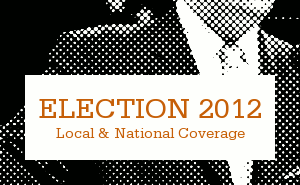Pennsylvania Senator Jim Ferlo (D-Pittsburgh) is sponsoring a new Certificate of Need (CON) law that would lower health care costs by decreasing duplicate amenities or construction and mold medical facilities’ spending based on the needs of the community.
Ferlo said that his proposed CON law would give local governments, unions, corporations, and shareholders a voice in determining whether healthcare expenses are reasonable.
“Despite the expenditure of hundreds of millions of dollars, we’re really not meeting the true community need,” Ferlo said.
Ferlo cited an example of the UPMC Braddock Hospital demolition in an area which he calls a “needy community.”
“A Certificate of Need allows all the individuals that are paying for the freight … to really weigh-in on the appropriate level of health care and how those services are created and delivered,” Ferlo said.
One way Ferlo said consumers can “have a seat at the table” in the decision-making process is through the Community Health Needs Assessments (CHNA). Now required under the federal Affordable Care Act, all non-profit hospitals must conduct a CHNA at least once every three years and create ways to accommodate the needs of the community it serves. According to the Public Health Management Corporation, the CHNA must include input from individuals who have public health expertise and those who have an interest in the community.
Ferlo said the Highmark and UPMC contract dispute could cause health care costs to increase if there is no CON law in place. Although in support of Highmark’s purchase of West Penn Allegheny, Ferlo said that if there are two very powerful health care systems, they both may continue to increase spending to contend with each other.
“The presumption is once we have these competing systems that actually there will be true competition and health care costs will be under control, [but] I think the opposite may happen,” Ferlo said.
Ferlo’s proposed CON law calls on the Pennsylvania Department of Health (DOH) to draft a State Health Improvement Plan that would pinpoint the needs of the community. Ferlo described the plan as an “evolving document” because it would seek input from the communities’ parties. The DOH would also have to create a panel for the Certificate of Need review process and make health care providers get any hospital spending more than $2 million authorized.






